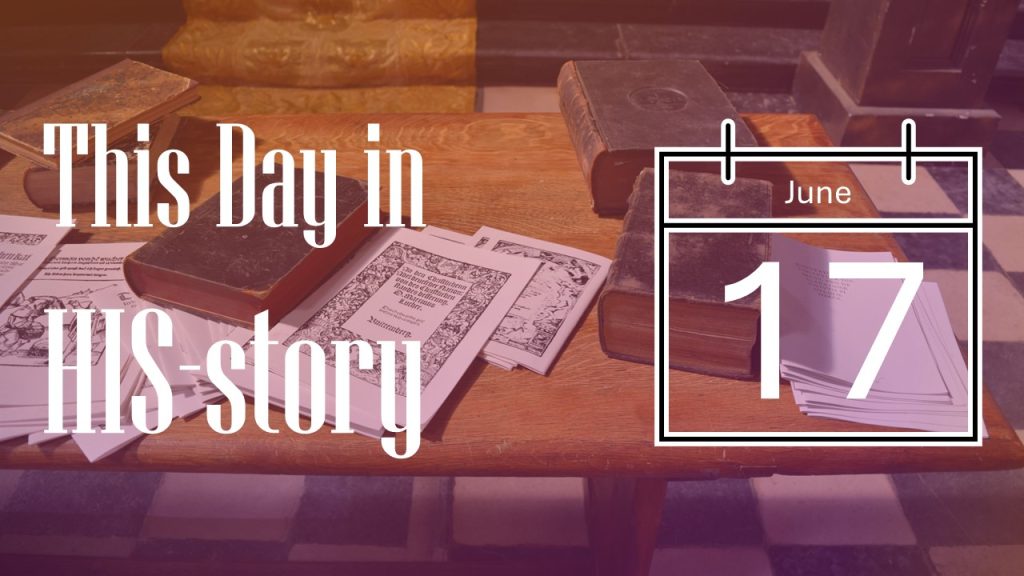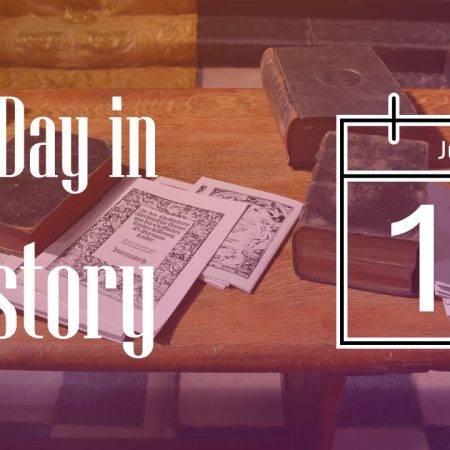
1789
THE HONOR of evangelizing New England for the Methodists belongs to Jesse Lee. Charles Wesley preached in New England in 1736, before the Methodist movement could fairly be said to have gotten off the ground. During the next fifty years, a few other Methodists ventured into New England. None planted churches or established circuits. Until Lee.

[Above: Jesse Lee’s first preaching place in New England, Norwalk, Connecticut. The preacher probably stood on the rising ground back of the roadside drinking fountain that was added later. Frontpiece in William Henry Meredith’s Jesse Lee: A Methodist Apostle. 1909. Public domain]
A Virginian, Lee grew up Anglican. He learned his catechism, which often kept him from sinning, but his heart was unconverted. He had a good voice and attended a singing school where he learned hymns. Despite these good influences, he was not committed to Christ. When Lee was fourteen, his father became an ardent Christian under the influence of Rev. Devereux Jarratton. The following year (1773), Lee overheard his father tell a relative, “If a man’s sins were forgiven him, he would know it.” Lee asked himself if his sins were forgiven, and realized the answer was “no.”
For weeks he wrestled with a growing awareness of guilt:
One morning, being in deep distress, and fearing every moment that I should drop into hell, and viewing myself as hanging over the pit, I was constrained to cry in earnest for mercy, and the Lord came to my relief, and delivered my soul from the burden and guilt of sin.
The following year, he joined a newly-formed Methodist class. Five years later, in 1778, twenty-year-old Lee became a class leader. In 1779, he preached his first sermon.
Assigned to South Carolina, he found himself conscripted into the army to repel a British invasion. He informed his officers he would do any work required of him, but would not use a gun. He did not believe it right for a Christian to kill others even in wartime. Lee acquitted himself well for three months in a support role, and his commander released him.
Methodist leaders added increasing responsibilities to him. His preaching struck emotional and spiritual chords in his hearers. Many got saved. His circuits thrived.
In 1785, while traveling with Methodist bishop Francis Asbury, Lee encountered a clerk from Massachusetts. The New England youth described that region to Lee, who became fired with a desire to take Methodism there. As Asbury could not dispense with him then, for four years Lee tried to interest some other worker in the task. Finally, Asbury dispatched him to the north. On this day, 17 June 1789, Lee found himself in Connecticut. Unable to convince anyone to give him a place to preach, he stood under a tree at the edge of a road. After singing and praying, he preached his first sermon in Connecticut. Its theme was “You must be born again.”
The upshot was that, after many hardships, he planted Methodism throughout New England, establishing several preaching circuits. Often it was his singing that drew a crowd when he first visited a town. Lynn, Massachusetts, embraced him cordially and built a church. The town became his favorite center for outreach.
A hearer said of Lee’s preaching,
When Mr. Lee commences his sermon it always reminds me of the hoisting of the flood gate of a mill; there is one incessant pouring of the sweetest eloquence I ever heard from any man in my life.
He was known for his quick wit. For instance, challenged on his knowledge of Bible languages, Lee gabbled a little Dutch which silenced his critics, who took it for Hebrew. Lee also compiled the first history of American Methodism.
Boston was slow to accept Lee or his teaching and he often had to preach on the Commons. Nonetheless, after his 1816 death, Boston Methodists erected a memorial to him, with the words:
NEW ENGLAND METHODISM Erects this Tribute
to the Memory of REV. JESSE LEE,
on the eighty-sixth anniversary of
his first sermon in Boston, preached under the Old Elm
on the Common, July 11th, 1790.
1791
Death of Selina Hastings, Countess of Huntingdon, a lifelong supporter of revival leaders and Methodists. Hours before her death of a ruptured blood vessel, she had whispered, “I shall go to my father tonight.”
